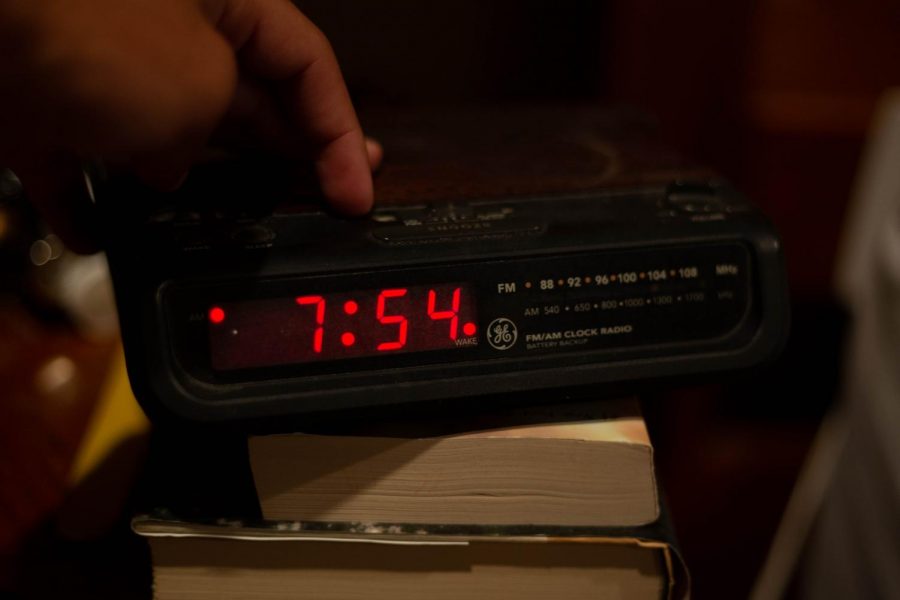Time to turn back the clocks an hour: Daylight Savings Time set to end tonight

More stories from Marianne Salas
Turn back the clocks tonight so when it is time to wake up tomorrow, the clocks will be correct.
It is time to make those clocks fall back an hour.
Daylight Savings Time is set to end this Sunday and at least for a few days, will make the human body feel like it’s getting an extra hour of sleep — something New Mexico State University students and faculty would welcome as the Fall semester hits the dog days.
New Mexico is an active participant in Daylight Saving Time, unlike its neighboring state to the left.
Arizona and Hawaii are the only states that do not participate in Daylight Savings Time, save for two reservations in Arizona, and Florida has recently passed legislation that would allow Daylight Savings Time to remain in place year-round.
According to National Geographic, though Benjamin Franklin was the first to suggest the idea behind Daylight Savings Time, George Hudson, a New Zealand entomologist, is credited with developing its modern counterpart in 1895, less than twenty years after the invention of the light bulb in 1879.
Daylight Savings Time was first introduced in World War I by Germany as a means to conserve fuel. At the time, a majority of electricity was produced by coal. National Geographic mentions that the United States first introduced legislation corresponding with Daylight Savings Time in March 1918.
The argument for and against Day Light Savings Time has been going on for decades, with those opposing it citing that it no longer has an effect on reducing energy consumption, as most people use electricity for cooling and heating.
Jon Granados, a senior, said that turning back the clock an hour hardly affects his schedule. Granados is a commuter student, and attempts to arrange his classes earlier in the day every semester in order to be done sooner.
“I’m usually out of class early, so the fact that it will get darker sooner doesn’t bother me at all,” Granados said.
Yevette Holguin, a freshman, enjoys Daylight Savings Time in the spring and summer months because she gets more hours in the day when it’s light outside.
“I get to spend more time outside, which is always nice,” Holguin said.
Holguin, however, noted that the end to Daylight Savings Time will also not have an effect on her schedule. For both Holguin and Granados, turning back the clock simply means more sleep.

Marianne Salas is a senior at NMSU pursuing a double-major in English and Government with a supplementary major in Law & Society. She will be attending...

